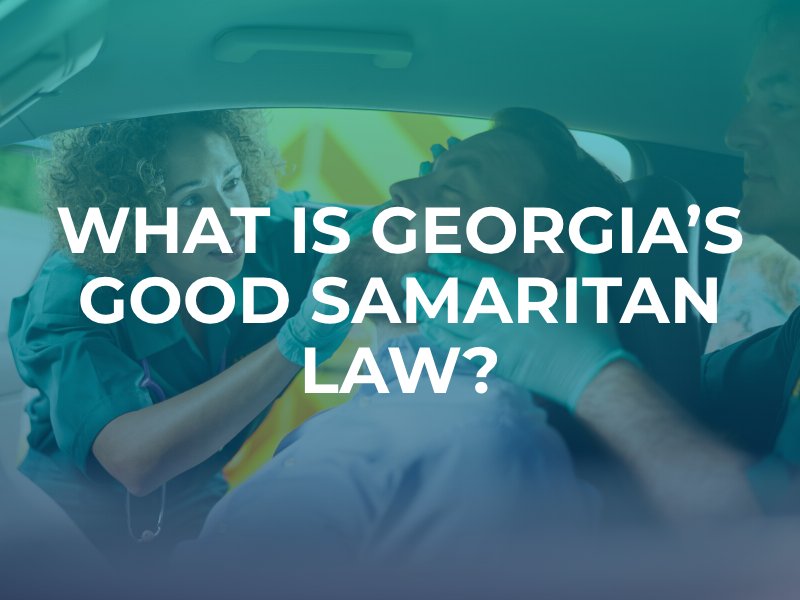What is Georgia’s Good Samaritan Law?
Many people have heard of Good Samaritan laws, but they may not understand what they are and who they protect. Georgia has had versions of Good Samaritan laws in place since the early 1960s, and they have been dramatically changed and improved ever since.

What is the purpose of Good Samaritan laws?
There are two primary purposes for Good Samaritan laws in Georgia:
- To allow bystanders who have no specialized training to help others in emergencies.
- To make sure that nobody is punished for their intention to help others in the emergency.
These laws have been put into place around the US because so many people have been afraid to render life-saving aid to others in emergencies because they fear the legal consequences of doing so. They are afraid they will further harm someone, even though they are trying to help them. Under these laws, those with no particular training can help someone in an emergency and not worry about facing a lawsuit or prosecution if they make a mistake or fail to save someone’s life.
Does this law protect licensed healthcare providers in Georgia?
Yes, Georgia’s Good Samaritan laws do protect licensed healthcare professionals in Georgia. This can include paramedics, doctors, nurses, and other medical professionals who are off duty when they see an incident occur. Even if a licensed medical professional fails to save someone’s life or makes a mistake while rendering emergency aid, they will not be held liable under the Good Samaritan laws.
Any licensed healthcare provider who offers free and voluntary services to those in an emergency situation is protected by Georgia’s Good Samaritan law.
Can you use an AED to help someone?
Many people wonder if the state’s Good Samaritan laws apply to the use of an automated external defibrillator (AED). You have probably seen these devices in the hallways of office buildings, malls, schools, or any other area where many people congregate. The Good Samaritan laws in Georgia protect various groups when an AED must be used. This includes:
- The person who uses the AED
- The owner of the location where the AED is located
- Any medical professional who oversaw the installation of the AED
- Anyone who provided training for proper AED use
Protection for those providing disaster relief
Any person or organization bringing disaster relief to those in Georgia under the direction of a state agency is protected by Good Samaritan laws. This includes situations such as infectious disease pandemics, natural disasters, terrorist attacks, and more. To qualify for protection, these services must be offered free of charge.
Georgia’s 911 Amnesty Law
A new law that is related to the Good Samaritan laws is in place in response to the dramatic increase in opioid overdose deaths in Georgia and throughout the US. The 911 Amnesty Law protects individuals in Georgia from arrest, prosecution, or conviction of certain drug offenses if the evidence gathered for such actions resulted from the person seeking assistance for someone thought to be suffering from a drug overdose. Without this law, friends or fellow drug users may be much less likely to call 911 if they witness an overdose.
Alcohol overdoses are also covered under this law, and the language is similar to the section regarding a drug case. These laws also protect someone not only from substance offenses, but also from violations of protective or restraining orders as well as violations of probation, parole, or other pretrial release conditions.
Speak with our Atlanta personal injury lawyers today at (404) 321-1700.